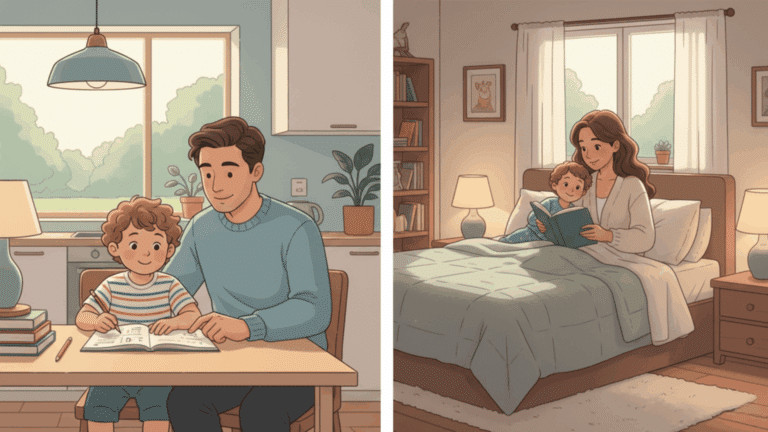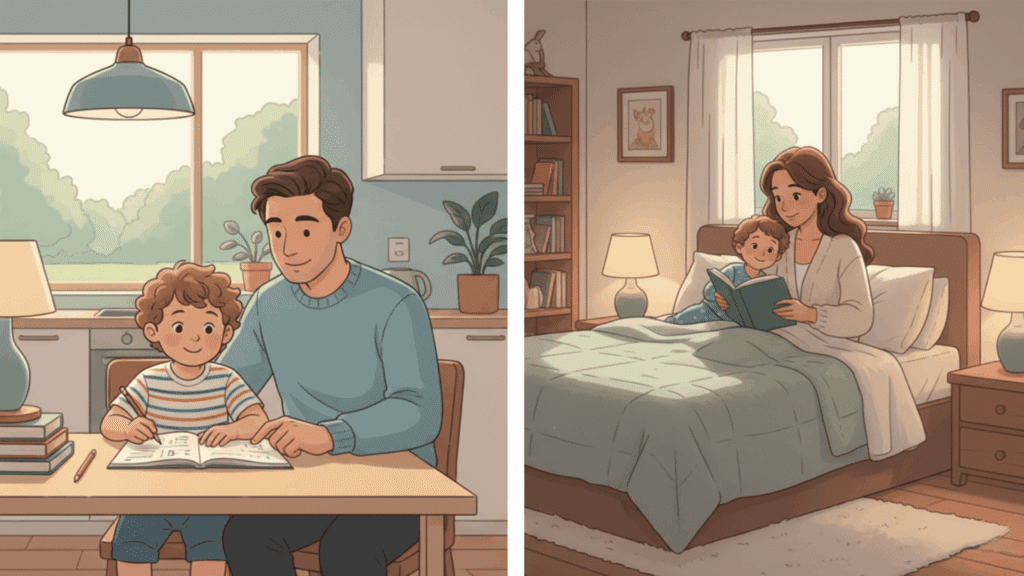Brain teasers leave people scratching their heads, especially riddles with answers that seem just out of reach.
The question “what is always on its way and never arrives” troubles many puzzle lovers who want to solve it but can’t quite figure it out.
This riddle, what is always on its way and never arrives, has a solution simpler than it appears. It has a logical answer that makes perfect sense once revealed. Many people look too intensely when the solution sits right in front of them.
This blog breaks down the answer to the riddle about what’s always on its way yet never arrives. It also explains the thinking behind this clever word puzzle and shares similar brain teasers that test your logic skills.
For anyone who enjoys mental challenges, these insights will help you crack not just this riddle but many others.
Answer to “What Is Always on Its Way and Never Arrives”

The answer to the riddle “what is always on its way and never arrives” is tomorrow. This answer works on multiple levels and shows the clever wordplay behind this brain teaser.
Tomorrow constantly approaches but never actually comes because when we reach it, it becomes today. The concept creates a perfect logical loop that makes this riddle both simple and brilliant at the same time.
Here’s why tomorrow works so well as the answer:
- Tomorrow is always coming but never present
- When tomorrow arrives, it evolves into today
- The next day is always called tomorrow again
- This creates an endless cycle where tomorrow stays forever in the future
The riddle plays with our understanding of time. People often think of tomorrow as a fixed point, but it’s actually a moving target. No matter how many days pass, tomorrow stays just beyond our reach.
That’s why the question “what is always on its way and never arrives” fits the riddle so perfectly – it captures the paradox of something that’s constantly approaching yet forever out of grasp.
This solution shows how riddles use language and concepts in unexpected ways. What seems like a complex puzzle turns out to have a straightforward answer that makes complete sense once you see it.
The best riddles, like this one, make people smile when they finally understand the solution.
Riddles That Are Just as Interesting as ‘Always on Its Way’
Riddles have captivated minds for centuries, challenging our perception of logic and language. The timeless question, “What is always on its way and never arrives?” invites curiosity about paradoxes that defy straightforward answers.
This collection of riddles spans wordplay, lateral thinking, and metaphorical twists, offering a variety of puzzles to test creativity and reasoning. Below, they are categorized under four themes, ensuring diversity in structure and concept, to cater to different problem-solving preferences.
Whether you enjoy linguistic tricks or abstract reasoning, these riddles promise to be engaging and interesting.
Wordplay & Language Riddles

1.What is black when clean and white when dirty?
Chalkboard.
2.I am an odd number. Take away a letter to become even. What am I?
Seven.
3.What word is spelled wrong in every dictionary?
Incorrectly.
4.What 4-letter word reads the same upside down?
NOON.
5.Forward I’m heavy; backward I’m not. What am I?
Ton.
6.I start with E, end with E, and contain one letter. What am I?
Envelope.
7.What 5-letter word becomes shorter when you add letters?
Short.
8.What begins with T, ends with T, and has T inside?
Teapot.
9.What has hands but can’t clap?
Clock.
10.What has keys but no locks?
Piano.
11.What word begins and ends with an E but only has one letter?
Envelope.
12.What is the end of time and space?
The letter E.
13.What has a head, a tail, but no body?
Coin.
14.What word contains all 26 letters?
Alphabet.
15.What has a neck but no head?
Bottle.
16.What gets wetter as it dries?
Towel.
17.What has an eye but can’t see?
Needle.
18.What has teeth but can’t bite?
Comb.
19.What has a thumb and fingers but isn’t alive?
Glove.
20.What is always in front of you but can’t be seen?
Future.
21.What can you break without touching it?
Promise.
22.What has a heart that doesn’t beat?
Artichoke.
23.What can travel the world without moving?
Stamp.
24.What has no legs but runs everywhere?
River.
25.What is full of holes but holds water?
Sponge.
26.What has keys but can’t open locks?
Keyboard.
27.What is always hungry and must be fed?
Fire.
28.What is lighter than a feather but hard to hold?
Breath.
29.What belongs to you but others use it more?
Your name.
30.What can you catch but not throw?
A cold.
31.What has a face but no eyes?
Clock.
32.What is always coming but never arrives?
Tomorrow.
33.What starts with P, ends with E, and has thousands of letters?
Post office.
34.What has a bed but never sleeps?
River.
35.What can run but never walks?
River.
36.What has a bank but no money?
Riverbank.
37.What has a ring but no finger?
Telephone.
38.What is found in the middle of nowhere?
The letter H.
39.What is the center of gravity?
The letter V.
40.What is the end of a rainbow?
The letter W.
41.What comes once in a minute, twice in a moment, but never in a thousand years?
The letter M.
42.What is so fragile that saying its name breaks it?
Silence.
43.What can fill a room but takes no space?
Light.
44.What is broken without being held?
Promise.
45.What has a foot but no legs?
Snail.
46.What has arms but can’t hug?
Chair.
47.What has a head but never weeps?
Nail.
48.What has a tongue but can’t talk?
Shoe.
49.What has a face but can’t smile?
Clock.
50.What has no life but can die?
Battery.
Logic & Lateral Thinking

51.A man pushes his car to a hotel and loses his fortune. What happened?
He’s playing Monopoly.
52.You see a house with all its walls facing south. A bear walks by. What color is it?
White (North Pole).
53.How many months have 28 days?
All.
54.A cowboy rides into town on Friday, stays 3 days, and leaves on Friday. How?
His horse is named Friday.
55.A man dies of thirst in his own house. How?
He lived in a lighthouse.
56.What can you break without touching it?
Promise.
57.What gets bigger the more you take away?
Hole.
58.The more you take, the more you leave behind. What am I?
Footsteps.
59.What has a neck but no head?
Bottle.
60.What has cities but no houses?
Map.
Objects & Everyday Riddles

96.What has keys but no locks?
Piano.
97.What has hands but can’t clap?
Clock.
98.What has a head and a tail but no body?
Coin.
99.What has an eye but can’t see?
Needle.
100.What gets wetter as it dries?
Towel.
Nature & Science Riddles

121.What has roots but never grows?
Mountain.
122.What can travel the world without moving?
Stamp.
123.What is full of holes but holds water?
Sponge.
124.What runs but never walks?
River.
125.What is lighter than a feather but hard to hold?
Breath.
126.What has a heart that doesn’t beat?
Artichoke.
127.What is always hungry and must be fed?
Fire.
128.What has no life but can die?
Battery.
129.What is always in front of you but can’t be seen?
Future.
130.What can fill a room but takes no space?
Light.
131.What is broken without being held?
Promise.
132.What has a foot but no legs?
Snail.
133.What has arms but can’t hug?
Chair.
134.What has a head but never weeps?
Nail.
135.What has a tongue but can’t talk?
Shoe.
136.What has a face but can’t smile?
Clock.
137.What can run but never walks?
River.
How to Approach Riddles: Solving ‘Always on Its Way and Never Arrives’

Solving riddles like “what is always on its way and never arrives” requires specific thinking strategies. Good puzzle solvers know that most riddles contain clever wordplay, double meanings, or logical twists that need a fresh perspective.
The key to cracking these brain teasers lies in looking beyond literal interpretations and considering multiple angles. Anyone can improve their riddle-solving skills with the right approach.
- Look for wordplay: Many brain teasers use words with multiple meanings. The “always on its way” puzzle plays with our concept of time and how “tomorrow” constantly shifts forward.
- Consider the impossible: When a puzzle describes something contradictory, think about concepts rather than physical objects. Abstract ideas like time often make perfect answers to seemingly impossible conditions.
- Break down the clues: Split the question into individual statements and analyze each part separately. “Always on its way” suggests something approaching, while “never arrives” indicates something unreachable.
- Think about everyday concepts: Many brain teasers refer to common things we experience daily, but from an unusual angle. Time concepts are familiar yet can be described in ways that make them seem mysterious.
- Avoid overthinking: Sometimes, the simplest answer is correct. People struggle with puzzles because they look for complex solutions when the answer is straightforward.
- Test your answer: Once you have a potential solution, check if it truly satisfies all conditions of the question. “Tomorrow” perfectly fits both criteria: always approaching yet never arrives.
- Connect to similar puzzles: Recognizing patterns helps solve new challenges. This puzzle belongs to a category of time and concept teasers, similar to “What gets wetter as it dries?” (a towel).
Conclusion
The mystery of “what is always on its way and never arrives” has a simple yet clever answer: tomorrow. This puzzle works because tomorrow constantly approaches but evolves into today when it arrives. The solution demonstrates how word puzzles often hide in plain sight.
People who struggle with brain teasers can use the strategies outlined in this article to tackle similar challenges.
Looking for wordplay, considering abstract concepts, and avoiding overthinking often leads to solutions. The best approach combines logical thinking with creative perspectives.
Next time someone asks about what is always on its way and never arrives, the answer will be clear. Understanding how these word games work makes them more fun to solve. The satisfaction of cracking a good puzzle comes from seeing the clever twist that makes the impossible suddenly make perfect sense.


















